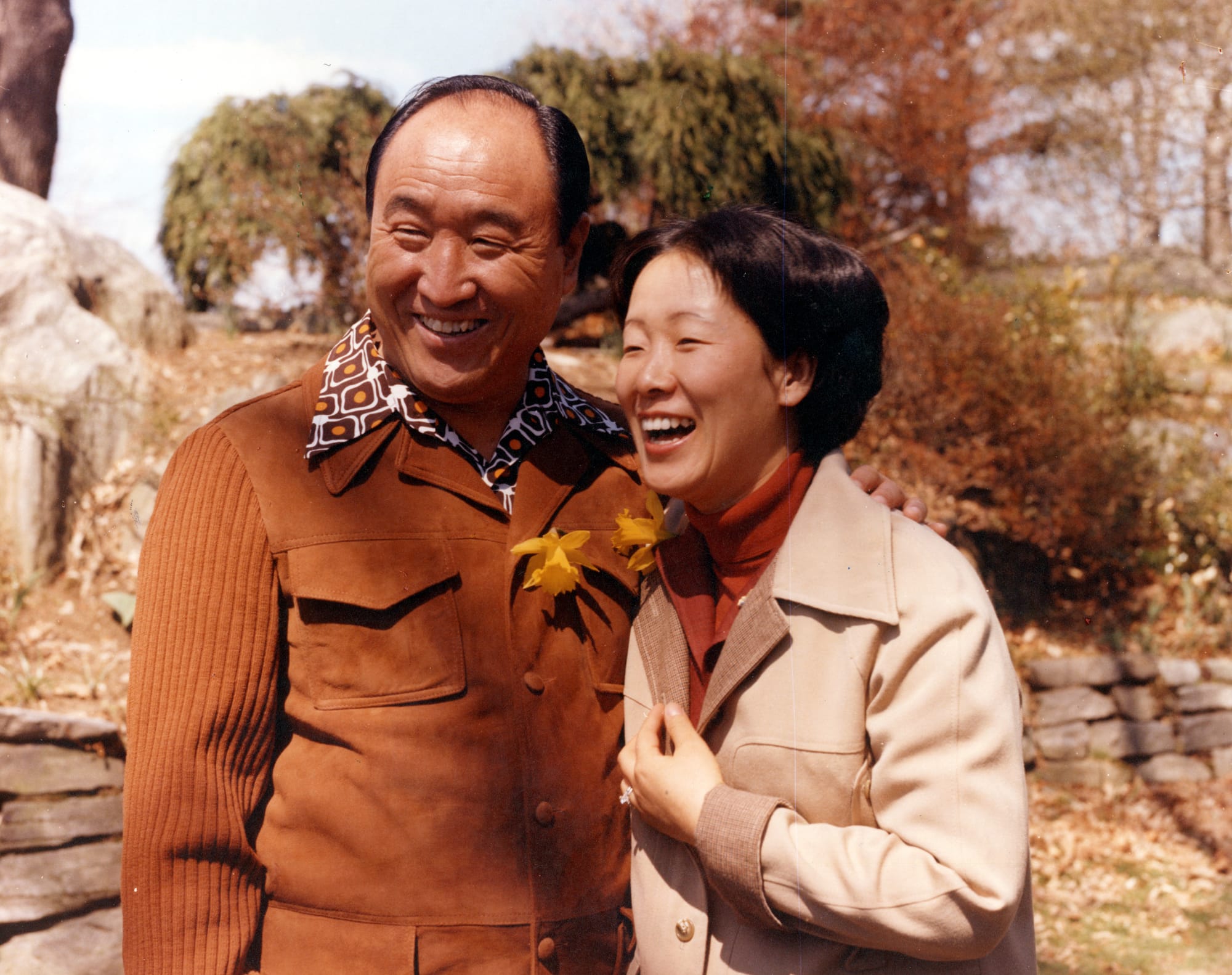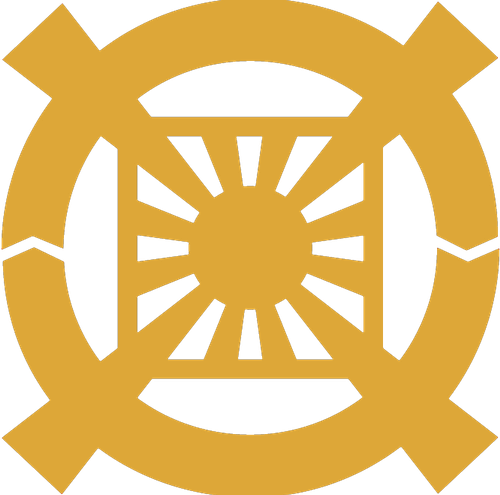My grandfather was illiterate. He didn’t go to school or a village study class, but he knew the story of the Three Kingdoms from the first to the last page. Once he started telling a story, he would continue without a break until the end. He could hold listeners spellbound. If someone began listening to him, he would not leave until he had concluded the story.
Our house is located just along the village’s main road, and if you visited Grandfather Moon’s house, sometimes you could find thirty guests in the guestroom.
My mother had a strong character, but she attended to my grandfather her whole life without a single word of complaint. Because of my great-grandfather’s influence, my grandfather, who occasionally drank and smoked, finally stopped smoking.
Great-Uncle Rev. Moon Yoon-kook (1877–1958)
My grandfather was one of three brothers, the youngest of whom was a minister.
He was responsible for the North Pyong-an Province organization during the March 1, 1919, Independence Movement.
With other leaders throughout the country, he helped decide on the movement’s plan of action. He led demonstrations against the Japanese government with the teachers and students of Osan School, his church congregation, and other local citizens, waving flags and marching throughout the streets of Pyongyang.
Eventually, he was arrested by the Japanese police for leading a demonstration. He served two years in prison. After he was released, he could have lived with his family in his hometown, but instead he wandered in a part of Korea that was unfamiliar to him to avoid Japanese police harassment. He died in Jeongseon in Gangwon Province.
In those days, ₩70,000 was a very large sum of money, but he sent all that money to the provisional government, in exile in Shanghai. To carry on such activities, he had to wander until he finally passed away in an unfamiliar province.
With such lifelong achievements, he could establish a foundation on which God could work. He sacrificed his family, his church, and his life to save the country, and he carried a heavy burden throughout his years as a wanderer.
When I came to South Korea, he was the only relative I had here. My cousin Yong-gi later had a dream in which my Great-uncle Moon Yoon-kook appeared to him and told him how he had passed away and where. My cousin went to that place and found that it was just as Moon Yoon-kook had told him in the dream.
Moon Kyung-yoo, my father (1893–1954)
I would say my father was a very honest man. If he borrowed money in an emergency, he couldn’t do anything until he had paid it back with interest within the time he had promised. In any case, he was a man who kept his word. I would say he was a champion at being as good as his word. He had a clear conscience.
My father had a four-hundred-page hymnbook. He took good care of it, but didn’t carry it with him when he went to church. One day, I asked him, “Why don’t you bring your hymnbook, Father?”
He answered, “It’s a bother to carry that book. Furthermore, I’m afraid I might lose it. It’s better to leave it at home.” [Laughter]
“How can you sing without it?” I asked.
“How? I sing with others who are singing. If I don’t know a song, I can look for it in the page of someone else’s hymnbook,” he replied. He has memorized the words to all the hymns.
My body is tough and strong. I am strong. My father was strong enough to go upstairs carrying a bag of rice like this. I am from such a strong line that I am healthy even though I am already over seventy.
Mrs. Kim Kyung-gye, my mother (1888–1968)
I would say my mother was a female general—yes, a woman general! She was considered an enterprising person. I am afraid that doesn’t accurately describe her, but in every situation, she did play an active part.
I am like my mother in many ways. At first glimpse, I am a man with a large, sturdy build. I am a man of great strength and a man of muscle.
My mother was a woman of strong character. When she flogged laziness out of a boy with a switch, she didn’t stop halfway. I am a stubborn, unbending person like my mother. Once I have made up my mind, I never give up. Indeed, that’s what I’m like.
My mother gave birth to thirteen children. My wife had thirteen children, too. It seems to have been transmitted from one generation to the next. Having many children is a family tradition. Many of my siblings died early, but eight brothers and sisters out of thirteen managed to live.
Can you imagine what a difficult job it was for my mother to marry off her six daughters?
I thought it was such a pity for a bride to get married into another family while burdening her family members and relatives with preparing the wedding. Though she had to get married, the bride may, I thought, be full of rancor on her wedding day against having been born a girl who is compelled to go into another family, leaving a heavy burden on her family.
In marriage, the status of the bride’s family is evaluated by the gifts that are prepared for the groom’s family. In my hometown, they are called “courtesy gifts.”
Clothes and plenty of other things had to be prepared to make up a bundle of presents. In Pyong-an Province, they used to count how many yards of first-class cotton cloth the bride brought to her new family. Every family had to try to send good gifts to establish good standing with the groom’s family.
People always have to eat and wear clothes. Food and clothes are essential, and so these are usually prepared for a daughter’s marriage. In the case of a woman marrying a man of noble birth in a home with many elders…
Women didn’t have nylon stockings in those days; all clothes were made by women who picked and ginned cotton, spun it into thread, and then wove it on a loom. My mother was a champion at doing those tasks. She was tough and strong. The average woman wove three or four jang (sheets) a day, but my mother did twenty jang in two days.
When my elder sister married, my mother wove one pil (roll of cloth) per day. The situation was so urgent that she couldn’t let a second slip away. She did the work in such a short time. I was born with that gift of being good at doing things quickly, as you know. [Laughter]
My mother and father loved me very much. It is natural for every mother to love her children, but for my mother, I was exceptional. If I were to go on talking about this subject, you would cry many times.
Mr. Moon Yong-soo, older brother (1915 – ?)
My older brother was so deeply spiritual that he knew ahead of time that Korea would be liberated and that the Korean War would break out. He had the attitude of solving all the problems he faced according to guidance from the spirit world.
He suffered from ill health, but he had never even dreamt of curing himself with the help of medicine. Furthermore, he tried to overcome it through prayer and faith. Finally, through his religious life, he recovered.
For my older brother, I was somebody. He thought highly of me as the greatest younger brother in history. Whatever I asked him to do, he never failed to do for me. Whatever I told him, he believed.
I was forced to part from my affectionate brother. The country was divided into North and South.
I think all my family and relatives must have lived through a series of ordeals and difficulties before they died. From a historical viewpoint, it was an essential course for them to pass through because of me.




